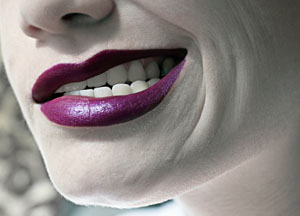
WIN-Initiative/Getty
People who are stressed are more likely to grind their teeth in their sleep—clenching, and working their jaws throughout the night, slowly wearing teeth smooth or even chipping them, and awakening with headaches and muscle tension. Yet, according to new research published last week in the journal, it’s not solely feeling stressed, but rather how individuals cope with stress, that may make them more likely to grind the night away. A study published last week in the journal Head & Face Medicine suggests that people who tend to cope with stress by, well, attempting to escape or ignore their problems, are more likely to process that stress by grinding.
The study, led by Maria Giraki, from Heinrich-Heine-University in Germany, included 69 participants, 48 of whom had been diagnosed with sleep bruxism, or teeth grinding. Participants grinding habits were tracked using bite plates that they wore overnight, and their stress levels and stress coping techniques were assessed using three questionnaires. As might be expected, participants who said that they felt higher levels of stress—due to problems at work, exhaustion, physical issues or other daily struggles—were more likely to be heavy teeth-grinders. Yet, interestingly, it was not merely the feelings of stress, but also the way in which study participants coped with that influenced the intensity of bruxism, the researchers found. Heavy grinders were more likely to use “negative” coping tactics, attempting to escape or ignore stress, for example.
The findings suggest that, beyond simply feeling stress, how individuals cope with stress may influence whether they grind their teeth, Giraki says. Future research is needed to confirm and expand upon these findings, but it could ultimately lead to new strategies for helping chronic teeth-grinders to interrupt the stress cycle, and find some relief.

